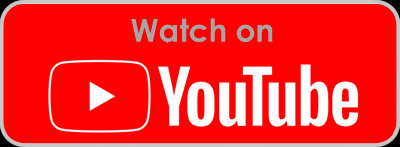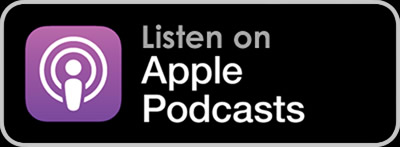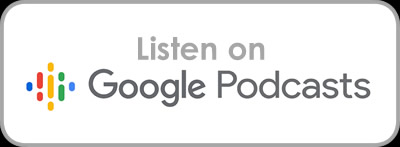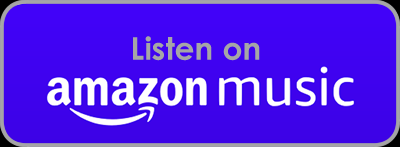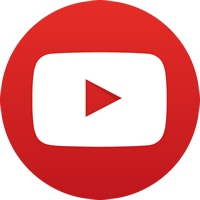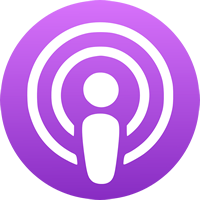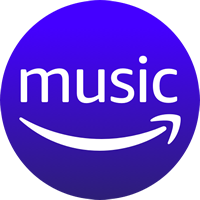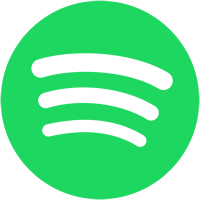The world of social media has exploded over the past 15 years. Consumers now have the ability to share their experiences about any kind of purchase imaginable.
But what about B2B? We’re constantly told that B2B marketing is very different from B2C – and that building a community in the world of B2B is a lot tougher.
But is that really the case? And what is the role of community in B2B marketing today?
Joining me to discuss that in episode 269 of Digital Marketing Radio is a man who’s been wholly focused on the world of B2B marketing for the past 17 years. He’s the Editor-in-chief of B2B Marketing – welcome to DMR, Joel Harrison.
Key questions covered in this episode:
How does B2B marketing differ from B2C marketing?
How has B2B marketing changed over the past few years?
Is it possible to build a community of raving fans in the B2B space or does community form a different purpose in B2B?
What sort of community works best in B2B?
How do you drive financial value from building a B2B community?
If you were starting to build a B2B community tomorrow, what’s the first three things you would do?
What’s the future of B2B communities?
Secret Software:
Swoogo
Next on the List:
Digital networking technologies
Magical Marketer:
Neil Berry from Atos
Audio recording:
Full transcript:
David Bain
Digital Marketing Radio, episode 269: What is the role of community in B2B marketing?
Bot
Digital Marketing Radio with David Bain.
David Bain
I’m David Bain. And this is Digital Marketing Radio with a place where today’s modern marketing masters Mingo, keeping you up to date with all the latest tools, tactics and trends, of all the essential matters in digital marketing today. The world of social media has exploded over the last 15 years, consumers now have the ability to share their experiences about any kind of purchase imaginable. But what about B2B? We’re constantly told that B2B marketing is very different from B2C. And that building community in the world of B2B is a lot tougher. But is that really the case? And what is the role of community in B2B marketing today? Joining me to discuss that in episode 269 of Digital Marketing Radio is a man who has been wholly focused in the world of B2B marketing for the last 17 years. He’s the editor in chief of B2B marketing. welcome to DMR. Joel Harrison.
Joel Harrison
Well, it’s lovely to be here. Thank you for inviting me.
David Bain
Well, you can find Joe over at B2B Marketing dotnet. So thanks so much for coming on, Joe. So Joe, how does B2B marketing differ from B2C marketing?
Joel Harrison
Well, I was once told about the four knots of B2B by an agency that created this as a kind of little meme, and I can only ever remember three of them. So I’ll try to do those three is not today. It’s not my money. And it’s not just by decision, B2B decision making is long term. There’s multiple decision makers in it, not just a couple, and it’s not the individual’s money that they’re spending, they’re spending the money of the organisation. So that’s very different from consumer, which often is quite emotion. Well, B2B is emotionally had been in a different way. But it’s not impulsive or instinctive, it’s very considered and has to be. And there’s all kinds of complexities in the decision making unit and individuals. And there’s a whole school of thought around called behavioural economics. Have you ever heard Rory Sutherland speak? He’s excellent about this. So yeah, it is very, very different. And people who say Oh, it’s just marketing, it’s all the same. And we generally speaking, is because they don’t really know anything about B2B
David Bain
Yeah, someone I certainly heard. Rory Sutherland see them on a few webinars hadn’t seen him in person. But um, shout out to the marketing meetup. You know, he’s done really well, a few great webinars on there. So does that mean that B2B Perhaps hasn’t had to change as much with the times in terms of digital marketing? Has it been more challenging or not even possible for B2B to really change as much technology wise, as B2C might have done over the last few years?
Joel Harrison
I’m going to challenge you back and say that I kind of don’t think there’s any such thing is digital marketing, because all marketing digital, I mean, if you’re if you’re at work doing analogue marketing, where are you? What are you doing? I mean, it can’t it doesn’t exist, it can’t exist. There are analogue activities to marketing. But the vast, overwhelming majority of B2B marketing, B2B marketing certainly is digital. And I think if you consider, has it changed as much as consumer, it’s changed in a different way, it hasn’t changed as fast or at least it hadn’t changed as fast about 10 years ago, but it’s definitely picked up pace. And you think about what I was talking about just now in terms of decision making units, there was a wonderful phrase coined and use the word modern marketing. That’s an expression coined by a by John Miller, who was who founded Marketo. And now went on to found part of what’s now demand base. And he coined the phrase, modern marketing. And it’s used to talk about another that came out of the marketing automation revolution. And another one of those guys in that process was Steve woods. And he talked about digital body language. And it was all about understanding how individuals and increasingly how accounts, how they function, and and all of the, the different touch points that they have, with an organisation with its sales team, with its marketing team, with its channel partners, sometimes with its website with their social feeds, in order to move towards making a decision. And so it’s incredibly complex. It’s incredibly digital. And, and, you know, and the complexity renders, it was the while some of the consumer activity I suspect is probably more up to the minute and possibly I daresay flashier. I mean, it sounds I don’t want to sound like a derogatory term, but I guess it can be B2B, that the online digital interactions have to be really meaningful to convince people to part with sometimes hundreds of 1000s of pounds,
David Bain
I guess I was thinking of things like appearing in trade publications. But is this something that doesn’t really exist anymore? I mean, people in B2B worthy generally not get a physical trade magazine anymore. Is most of that online as well. Yeah, I
Joel Harrison
mean, increasingly, I mean, you’re I mean, you wanted to talk to me today what the kind of the well, things we’ve explored one is around communities. We are actually interesting case in point. Last year, we shut we closed our magazine we stopped printing a magazine out Now we relaunched it 17 years ago. And that was all we wanted to be. And we expanded to different things. And we probably it probably lasted beyond itself by day, partly because we didn’t know what the go to thing was. And communities are filling that gap. And if you actually look around, if you look at the big B2B trade publishers, people like email, and Informa and people like that, and the various companies in that read RBI in those kind of areas, you know, they’ve either divested themselves of what’s left of their trade publishing, you sent in what Martin was sent to AWS zm, known as pronouncer is another example that the divest themselves of that, or they’ve mutated them into either community platforms or data platforms, or sometimes both. So yes, they’re offering products around and, you know, as a, as someone who’s Heartland is in producing magazines, you know, I still think print plays a valuable role, but it’s not embedded into people’s work streams and where digital is.
David Bain
So why do you think it took you until last year or two to move over to more of a community focus from a physical copy magazine is that because building communities for B2B is tougher or takes longer or isn’t as effective as B2C?
Joel Harrison
I think it’s a combination of things. One is the, it’s like I said earlier on, we had, we had a magazine, it was and we had a magazine as a centre of what we do. Just to clarify, for listeners, B2B marketing is a kind of, you know, multimedia, kind of portfolio of products, content, you know, we have our own podcast, loads and loads of webinars that we do loads of content with great loads of events. And awards are a big part of that. But the central that was a magazine. And so it was a case of until you if you had something to add something to sort of place the magazine, it was hard to know, to back away from that. And we had, I think we actually, and this was something that came from the pandemic, we were looking at beginning of 2020, looking down the barrel of a gun, because as lots of companies and businesses were going we make a lot of revenue from events, we know that we may be able to run events online, but we probably want to get the delegate revenue. And this looks quite scary. And one of the one things he did give us the opportunity to do is we had a membership programme membership activity for CMOS marketing directors. And we knew that there was more that could be it wasn’t enough. And we knew we could package it up together and deliver more stuff together within it. And we actually spent allocated some time to doing that. And we didn’t say we want to launch community, but that’s kind of what came out the other end of that process. And actually, what we realised is that this was something which was gathering momentum gathering pace, the that there was an understanding that of what community looks like in in a B2B context, which is different to what looks like in the consumer context. And and I’ve been, by the way, I don’t think that we’ve completely got that. Yeah, I think every day that goes past, I think I learned more about what it should be and what it could be. And we so we embarked on that journey. And we launched in January, it’s called propolis, which means first city, it’s also but also it’s the it’s the word. And by the way, David, if you haven’t heard this word, I had never heard it before we were before we were just about to Google it. So it what it literally means first city, but also it’s the it’s a term that bees is the word for what the resin the bees creates and make to build their hives. So obviously, it’s the foundational block for bee community, bees B2B In the period obvious kind of synergies there. But he’s a community lead, they’re industrious, they work together. So you know, it felt very, very simple and strong. And it is it’s the right time. And I mean, I feel like without wishing to extend this answer, which I appreciate, it’s frustrating when you’re interviewing someone, you know, what we’re learning around what what B2B marketers want. It’s different in terms of who they are. The CMOs and senior marketers want the connectivity, peer to peer collaboration, sharing, validation, all that kind of stuff, that marketing managers want quick wins, quick fixes to sort out that everyday challenges they have. So we have to cater for both those levels and lots of grey areas in between. And, and that’s what we’re doing.
David Bain
So what research did you do when you decided that you’re going to launch a community? And how did that research, change impact what you actually decided to templates in the community, we interviewed
Joel Harrison
a lot of our best customers and asked them what they liked from us and what they didn’t like. And we looked around into the market in terms of what solutions are available as well. Actually, ironically, we believed, naively that a lot of what we could deliver, we could deliver an analogue fashion. We weren’t necessarily looking for a digital community hub. We kind of strung the bits together and thought we could deliver this in a kind of largely offline way. At the risk of counteracting what I said earlier on or contradicting what I said earlier on. But then it became obvious that actually, the digital community platform is the piece that that strings these things together and makes them more powerful, and takes on his life of its own as well.
David Bain
So what are the typical long term objectives of having a B2B community? Is it with a view to turning prospects into customers and brand evangelists? Or is it simply a no, turn it additional revenue model or alternative business tool? To what businesses typically
Joel Harrison
doing? Are you talking now from a position of a publisher or an information provider like ourselves? Are we talking about position from the customer’s perspective? Or both?
David Bain
I think I’m looking at from two different perspectives. One is, from your own your own experience, what are your own reasons behind doing it? Or do you actually want to build that into a revenue generating model by yourself? Or is it a way to simply market other things that you do? And then secondly, from a general B2B brands perspective, that hasn’t got a community yet, but it’s thinking of having a community? What’s the value in having it for them? Is it a marketing channel? Or is it an opportunity to add an additional revenue stream?
Joel Harrison
Okay. All right. So thank you for clarifying. Sorry, for that. From our perspective, the value for us is that it allows you to cultivate, build deeper, longer term relationships with our best customers, the type of customers, which we know, buy lots of stuff for us and do it in a holistic way, instead of trying to sell lots of little bits and pieces, and throughout the year, subscriptions, event tickets, awards, entries, training, and advisory consultancy on top, we can package it off in one piece. And by the way, we can tease out better opportunities by having a collective relationship with them. And instead having just a member at a CMO level, we can have members ship at the heads of function level and a marketing manager level and even at an exact level. So we can cater for all their all their needs by packaging things up into a solution. Now, I don’t know if that and Is it painful? Yes, it is paid for you know, it’s not, we’re not going to say it, it’s not free, you know, we have to do a lot of work to populate it and make it work and let people contribute to it. So it has to be paid for. And I don’t know enough about other organisations, in terms of B2B publishers, or what you would call publishers 510 years ago, but I know that we are people like chemical watch, for example, are ahead of us on this journey. And there’s different iterations of that same journey, people are going on for that very reason. Because they want to get close to their customers and live what they want, and just pump and you know, just pumping out print magazines. But your point earlier on is, well, it’s very 9095. So it’s not we want to be right now. And then in terms of your other question was around the role of it for brands? Should you know, should it brand what should brands consider? If? Should they consider having their own communities? And I don’t think necessarily needs to, I think it’s I mean, for me, this is where intermediaries come in. This is where people like ourselves, it’s about the it’s about the intermediary for 2022 rather than 495 or 2005. What does that look like? And there are a we are working with commercial partners, we’re starting to work with commercial partners within the platform, it’s early days for those yet, but we know there’s opportunities for that. And, and that has huge benefits for them. You know, I don’t think every brand needs to or actually, it would actually be damaging for everyone to try and serve their community. Some do definitely have the opportunity to do it. But it’s more about how you leverage other existing communities and work with the owners and managers of those communities in order to position yourself and your activities, best within those activities. Because the community can be anything who based or anything I’m talking about. A lot of events are building trying to position ourselves to communities and obviously, B2B brands, you work with events, but it’s moving beyond that kind of one off transactional moment where you turn up build a big stand. I hope to speak to people for three days and then go off again. So I hope I answered your question.
David Bain
Yeah, absolutely. What are your thoughts on a B2B community, I digital B2B community as an opportunity to network because in the past, I’ve gone to various different business networking events, not so much recently, but I remember going to loads of breakfast meetings with the view to actually just deduced is it speed business dating or whatever? It’s called have too many conversations with different people and maybe do many presentations of what I do as well. And there’s an opportunity to perhaps Lee perhaps do business directly with other attendees on the face of it that seems more challenging and less personable to do that in a digital manner. Is that still possible to do that digitally?
Joel Harrison
I think it is possible but you’ve got to manage those relationships. Well, it’s not it’s just not the same and I think it’s easy to to make some assumptions. Even having some experience of these things that they’ll work in one way where they were they weren’t, I think you have to do, I think my job as a community leader is to cultivate those reciprocal relationships and get people to understand the value they offer to each other to each other. And that does involve some offline activities as well, or at least stuff like zoom, for example, we do a lot of roundtables and meetings, where you can understand experts and you can look at find people who shared similar problems to you, and then cultivate opportunities for them to come together. And we are doing an event for our CMO audience next week, a physical event. Ironically, we did an event last week and a conference about Account Based Marketing. That’s actually, we wouldn’t normally do so many physical events in one month, it’s just an accident of circumstances that’s happened. But there’s definitely a role for the analogue activity as the icing on the cake, but backed up underpinned by a digital stuff, which allows immediacy and accuracy and, and flex pragmatism flexibility around who you talk to him when,
David Bain
because of COVID COVID, do you believe that we’re going to see much less face to face interaction in the future, we’re gonna see a combination between digital and an physical meeting still?
Joel Harrison
Well, if you think about event, if you, if you look at the perspective of events, I think the future is definitely hybrid, we know we’re not going to go back to the old days of all physical events, physical leading, being the only thing, but I think people are, are bored of a zoomed out, frankly, you know, even the MD of zoom, so this zoomed out knee. And, and frankly, also, you know, what was successful in May 2020, is not what’s successful. Now, there was, you know, there’s, there was, frankly, a lot of rubbish that was going on then and everyone’s and that the bar has been raised significantly. So to get back to something to everyone to the kind of standard of raise of what is what good digital events looks like. And we need to move with it. I mean, our conference last week, we had, it was a physical conference, but it was streamed, so you know, we sold tickets. Last year events, were mostly free, we did sell some tickets as well. But and going forward, they will be there’ll be only be paid for. And we actually are learning from last, because we’ve been offering digital tickets at a reduced rate, we won’t be doing that anymore. Because you’re all the work is the same. And actually, the costs are higher as well. So you can attend in person if you like. But you can also attend digitally. And you can look up stuff on demand, which is great when you’ve got different streams of activity going on. I appreciate you weren’t actually talking about events, but that’s quite high on my agenda.
David Bain
Now, that’s great. That’s a relevant conversation, a related conversation. Do you not have more fixed costs when people are attending physically? And is not putting people off? We’re just going to attend digitally to pay the same as someone attending in person? Well, it’s
Joel Harrison
a very good question. I mean, I think what we want to try and encourage people to is, economics is about incentives and disincentives, and you want to give people just tell them all the value that they get that they’re getting by coming. And, you know, we will continue to watch it. But we’re definitely at the very least there won’t be a there won’t be as the even if they don’t end up being the same price in the future, there will be vastly less difference. You know, so. And it might be that we put up the physical cost of events, because and then and so they become they become more balanced that way. I don’t know. But But I think you have to encourage people monetarily to come and to show them all the things they’re missing out on for the very reasons you’re speaking about that the power of those interactions, and the power of the things that you when you learn when you’re seeing them face to face, and the people you meet face to face is is tremendous. And, and is always worth taking time out for.
David Bain
It’s certainly challenging. And people are learning, as you say, and it’s a new type of event. It’s not something that existed five years ago. So I think businesses are learning and changing their offering because of that. I think another challenge that these type of hybrid events have is to encourage as much interaction as possible to from people who are actually viewing digitally. Did you attempt to encourage interaction from people attended digitally and actually do things like even maybe read out their names or involve them somehow as part of the physical event as well?
Joel Harrison
Yeah, I mean, well, you mean when they went to digital only or the one we did? It was hybrid? Yeah. Yeah.
David Bain
So the event that you’ve just done. So for people that were just attending virtually, yeah. Did you do something to actually try to incorporate them as part of the physical event and make them feel that they really were part of the real thing as well.
Joel Harrison
We did try about we honest, we could have tried harder. And I think it was one of those problems that you’ve got some integrating. It was one of the things we didn’t think about early enough. You know, we had people cultivating the digital stream we tried to get questions in, we’ve got some questions in. But it’s just a difficult process to manage. I don’t think the platform we were using could was, we didn’t use the right collection of tools to do that. So it’s definitely think we need to do something to work on it work harder at, but the feedback we’ve got has been generally pretty good. There’s a very good Rob Rob and pretty good. And they seem to have enjoyed it. And I think that the, the buzz, from the live event translates into the digital digital one, they see the people enjoying it, they appreciate it. The highlight for me was when we had a couple, two speakers from Autodesk. And there was someone from Germany who was presenting virtually, and someone from the UK presenting physically. And we have people in the room watching and people online watching as well. So that was like a, that was like meta hybrid, I think you could call it, it was it took a different level. So so that and that went well. And they everyone enjoyed that and went down well. So that gives me competence. Great, great, well
David Bain
done. That’s, that’s a good combination. I remember, um, about five years ago, or so I was live streaming the Brighton SEO event. And I was hosting an in between speakers, discussion panel, one on what had actually been discussed, and then that was being live streamed. But one or two members of the discussion panel were joining virtually as well. So that was a whole strange mixture of things. But uh, but it was very appealing to the target audience, and it’s something that certainly feels that makes people feel that they’re being involved because they see people virtually taking part as well. I don’t think anyone as you say that as got a completely right yet, but it’s, it’s important to try these things. Absolutely. Okay. Well, let’s move on to the second section for discussion. So it’s night time, time For Joe’s thoughts on the state of digital marketing today. So starting off with SECRET SOFTWARE. So Joe, can you share a lesser-known martech tool with it’s bringing you a lot of value at the moment and why that tool is important for you.
Joel Harrison
We just deployed Swago as our delegate management platform for running our events. And yeah, everyone seems to be loving it. It’s great. We were using another car another tool. I’m not gonna mention the name of something I’m gonna be less than positive about it. I think it’ll be unfair. But was it one that was more orientated around physical events? And it didn’t really work in new capacity. So to go Yeah, is so far very impressive.
David Bain
So swill go, I was just trying to spell that is SW Oh God, isn’t it?
Joel Harrison
SW, double OG o
David Bain
rowing. Okay. I think that’s what I’m, that’s what I read and Google anyway. Wonderful stuff. Okay, let’s move on to NEXT ON THE LIST. So what’s one marketing activity or tool that you haven’t tried yet, but you want to test him
Joel Harrison
was back to your point earlier on, I think I really want to explore more of the digital networking technologies. The platform, the event platform that we used for our use over the last 18 months is really good at broadcast stuff. But it’s it is changing all the time, the amount of money going into these platforms is extraordinary. But it’s a bit weak on the networking side of things. So there are some platforms that have more better functionality built in. And there are some platforms that actually just do that by itself. And I think I’d like to explore some of those things. I know there are a few things that operate operate in that area,
David Bain
right stuff. Yeah, I think I’ve received an invitation recently for a bit of software called Lunch Club. And it seems to be encouraged actually physical meetings of people, but I haven’t haven’t given a proper goal but could be a better interesting software to try. And yeah, let’s move on to the next section. So that’s called the this or that route. So this is a quick response round. Just 10 quick questions here. Two rules. Not try not to think about the answer too much. And you’re only allowed to say the word both on one occasion, so use it wisely. Are you ready? Okay. Tick tock or Twitter, Twitter, Facebook or LinkedIn, LinkedIn, YouTube or podcast, podcast, traffic or Leads. Leads, paid search or SEO, SEO, ads or influencers? ads, Google ads or Facebook ads, Google ads, email marketing or chance marketing, email marketing, more tech stack or all in one platform. Masek stack one to one or scale
Joel Harrison
once one
David Bain
Oh, you’re definitely not into Facebook and you probably armed a little bit on traffic or leads. I understand why you said leads But why were you potentially thinking traffic? I
Joel Harrison
heard an interesting, fascinating presentation at the end of our IBM conference last week about some about somebody from a Latin the comments, I think I think of her name. She’s an American CMO, a comic was six cents. And she was she wrote a book about the transformation they went through. And she said, we turned we, we just basically broke the gates down, we caught up with our gates. And because we want, you know, and I’m not going to pretend to try and explain the rationale, but she just believed that the right content gets the right people and, and it turns into inbound. And we’re attending to the right, the opportunities, and I liked the idea about and I. And the other side of it is I think if you’re working at B2B for any length of time, there’s a tyranny around leads. And marketing automation was designed to improve that relationship. But actually, you know, often it only exacerbated it, and you had the conversation about what is a marketing qualified lead, and what’s the sales accepted lead and stuff, getting chucked backwards and forwards, so it almost it created created a better construct for Battlefield rather than resolving the battle, whereas Account Based Marketing at the one to one end, which is why I’m saying that is, is does resolve that issue, but it’s not right for everybody.
David Bain
So do you think if I asked you that question, in five years time, you would say traffic over leads?
Joel Harrison
I hope so. I can’t guarantee it. I mean, I think there is, it’s back to your point I was I mindful listening back to my own responses, that they, you know, they definitely weren’t the most bleeding edge and have kind of, of martagon or digital marketing, even if such thing exists or not. But beyond seeing as I’m a Digital Marketing, Radio, I probably should say it does exist. Well, that was that would be that. Otherwise, it would get all existential, and I wouldn’t even be here. So. Yeah, I hope so. But I think in B2B, kind of old habits die hard.
Bot
But let’s move on to the $10,000. Question, if I were to give you $10,000, and
David Bain
you had to spend over the next few days in a single thing to grow your business, what would you spend it on? And how would you measure success,
Joel Harrison
I think I’d spend it on on on just an inexperienced, more, somebody some more, some more resource in our business, I mean, we’ve gone through a tremendous period of transition and change, not helped by the fact we moved offices a couple of days ago, as well. So much stuff, exciting stuff going on, we never have enough people to throw at stuff. And right now, I could just do with some help in terms of getting marketing out the door and getting content out the door. And obviously, as we all know, those things are very aligned. So I’m sorry, that’s quite a crude answer. But um, that would be, you know, if you if you sent me, someone someone experienced, you can just churn through stuff for three months, that will make my life a lot easier.
David Bain
So when you say get content out the door, what what type of content? Ideally, would that be to appeal to your target market? Well,
Joel Harrison
I mean, all any kind of content, I think it’s, we have so much that we’d like to be doing so many, you know, it’s less is more, but also I’m for me, on a personal level, I’m trying struggling to triage my own time, things that I’d like to be doing and things that I’m not able to be doing. So everything from webinars to podcasts, to features, you name it, you name it, we could we’re not that I haven’t got a I wanted a great team. And some really new people who are doing tremendously well. And but we there’s always, there’s so much we were an exciting point in our business. And we just need which is much i If you gave me someone someone great for three months, I would, I could make very good use of them.
David Bain
I mean, I think its contents obviously essential in this modern world. For a client actually, at the moment, I’m producing a book. And in order to produce the book, I’m interviewing over 60 different marketing experts and producing that as a video series and a podcast and a book and publish it all on the same day. Do you think that it’s it’s possible to produce content for multiple mediums like that all at the same time? Or do you think ideally, you should just focus on one medium at a time?
Joel Harrison
Well, I’m gonna say yes to both of those because I think it is possible but it is i but it is ideal that you that you do want some but you know, I’m sure you know that you believe that already. You can repurpose stuff you should seek to repurpose stuff, but sometimes there’s complexity and repurposing, which can drive you slightly out of your mind.
Bot
Okay, let’s move on to MAGICAL MARKETER
David Bain
who’s an up-and coming marketer that we that you’d like to give a shout out to what can we learn from them and where can we find them?
Joel Harrison
Well, I think I was like coming off the back of our conference last week on Account Based Marketing, I would say Neil berry from our sauce, who was the head of ABM Account Based Marketing there who gave a tremendous session at our conference. Around his experience of plotting out atlases Account Based Marketing Strategy, and all of the lessons he’s learned along the way with that, Neil is a great guy. He’s got a really a disarming, self effacing manner to him, but he’s achieved an awful lot in his career. He’s kind of come through the Fujitsu School of Account Based Marketing, and learned a lot from Andrea Clatworthy, for example, who is the guru in that kind of area? But yeah, he he’s doing doing brilliantly and his session at our conference just really resonated with people in terms of the honesty and the candour with which he spoke about challenges, but also, he’s been very successful in there as well. So, yeah, he’s definitely someone we’re following. If you’re interested in that kind of thing.
David Bain
Wonderful. Wonderful. I’d like to point out it’s not the jujitsu School of Account Based Marketing. It is the jujitsu one.
Joel Harrison
It’s like different. Yes. Very often.
Sometimes. It could be the jujitsu school, but I don’t know. I haven’t met Andrea and UCLA on a dark night. So maybe, who knows?
David Bain
Absolutely superb. Well, Joe, thanks so much for joining us today. Obviously, listener can find you through B2B marketing dotnet, is there an ideal social platform that you like to interact on that people can follow you on?
Joel Harrison
Your LinkedIn or Twitter are both really good? I’m not really very much of anywhere else. But certainly not a work capacity on Facebook. And so yeah, I’d love to interact with people on either of those things. So thank you so much, Dave. It’s been lovely speaking to you some really interesting questions, thought provoking ones as well. So I so really appreciate it.
David Bain
Yeah, thanks for coming on, Joe. So obviously, you we talked a little bit about B2B marketing in general, if you’re going to set up a community, ask your market about it before you set up a community. I think a lot of marketers make that mistake the they launch something and then ask for feedback. That was so important, what you said to begin with just
Joel Harrison
I would just add to that I wouldn’t I just it’s not for the faint hearted. It’s something you’ve really got to buy really got to be committed to you can’t you know, the thing about social social presence, you can’t just have a social media presence, and then leave it alone with this community. It’s quite the opposite. It takes a lot of money and investment and time to do it. And if you’re not really, really super committed to it, just don’t bother.
David Bain
Yeah, yeah, absolutely. And I think the same goes with all the all the different social platforms, don’t be on everything and give links to everything and then not interact on there. That’s actually negative publicity instead of good publicity.
Joel Harrison
We could have another conversation for that I’m
David Bain
sure. We had a great great conversation with hybrid events, of course, as well. And I, you know, you could have a lot of great thoughts or personal experience from doing that. It’s definitely the future. It’s how it’s done. You’ve got to involve everyone who’s challenging to do that. You’re SECRET SOFTWARE swisco.com. Your NEXT ON THE LIST digital networking technologies and your MAGICAL MARKETER Newberry from Atos. I’ll make sure that there are links to all of that in the show notes at Digital Marketing radio.com. Anyway, thanks again for coming on. And great to have you as part of the show
Joel Harrison
is wonderful to be a David thank you so much invitation
Bot
radio.com radio.com pixel marketing radio, radio, Digital Marketing Radio


